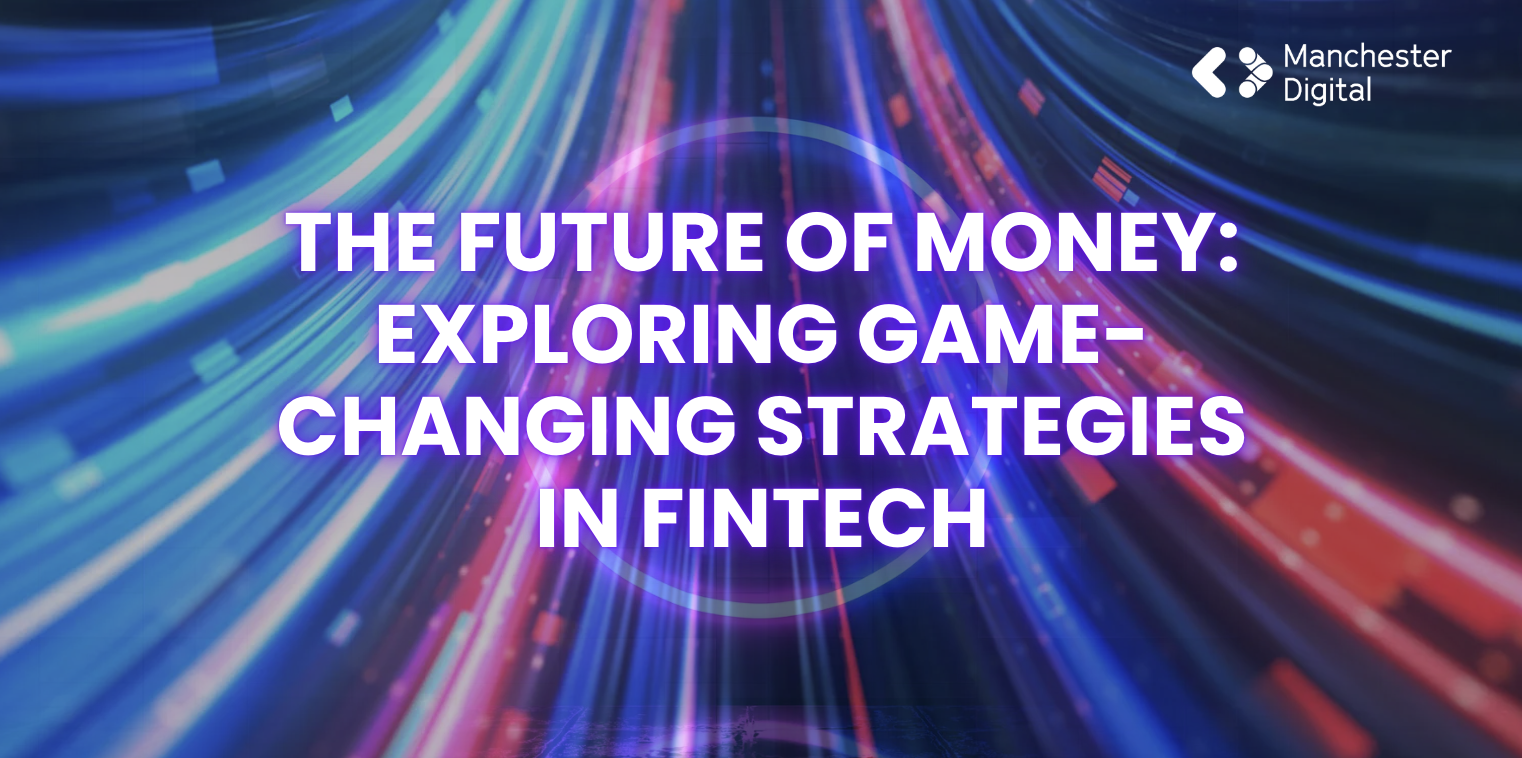
The Manchester Digital Fintech Conference 2024 will showcase the latest innovations and challenges facing the Fintech sector and provide a glimpse into its future.
To shed light on some of these latest developments, we asked Fintech experts from across our community to share their insights into the innovations and challenges facing the Fintech sector in 2024.
CyberLab
The finance sector, a prime target for cyber criminals, faces escalating risks, with 65% of organisations hit by ransomware in 2024, according to a recent Sophos report. Emerging technologies such as AI and blockchain are revolutionising financial services but also expanding vulnerabilities. The rise of quantum computing, expected to break encryption within decades, requires significant regulatory adjustments and investments to maintain secure, resilient financial systems.
Fintech's digital-first nature, combined with evolving threats like AI-driven attacks and the encryption challenges posed by quantum computing, demands enhanced security measures. Strategies to mitigate these threats include data protection compliance, adoption of cyber security frameworks, and quantum-resistant encryption, which will shape future financial models, payment systems, and overall industry operations.
Fintech firms must implement robust security practices such as regular penetration testing, managed detection and response, incident response plans, and employee training to combat threats effectively. These steps are crucial for building trust in digital finance and securing the industry's future.
As Fintech continues to evolve, a proactive approach to cyber security will be pivotal in driving secure, scalable growth. Game-changing strategies like embracing adaptive cyber defences, integrating quantum-resistant technologies, and leveraging advanced AI will redefine the future of money.
Learn more about CyberLab here
VE3
The Future of Money: A Glimpse Beyond Cash and Cards
The way in which we interact with money is go through a seismic shift. Cash and cards are now being nudged aside by a wave of innovation in financial technology (FinTech). Here at VE3, we're excited to explore some of the trends shaping the future of money.
1. The Rise of Programmable Money
Blockchain technology is paving the way for "programmable money," where digital currencies can be embedded with instructions for automatic execution. Imagine automatic payments triggered by smart contracts, or loyalty points seamlessly converted into discounts. This opens doors for streamlined transactions and efficient financial management.
2. Open Banking Revolution
Open Banking regulations are fostering an ecosystem where third-party applications can securely access consumer financial data with their consent. This creates opportunities for innovative FinTech solutions like personalized wealth management tools and AI-powered budgeting apps that cater to individual needs.
3. Cryptocurrencies and Central Bank Digital Currencies (CBDCs)
Cryptocurrencies like Bitcoin are challenging traditional financial institutions, while central banks are exploring CBDCs as digital versions of national currencies. The future may see a coexistence of these systems, with increased regulation and integration into existing financial infrastructure.
4. The Frictionless Future
Frictionless payments are becoming the norm, from contactless cards to mobile wallets. This trend will likely extend to areas like micropayments for online content or instant settlements for international transactions.
5. Financial Inclusion for All
FinTech has the potential to bridge the financial inclusion gap. Mobile money solutions and digital identity tools can empower the unbanked population with access to financial services, fostering economic growth and participation.
The future of money is one of decentralisation, automation, and inclusivity. We, at VE3, are committed to working alongside Manchester Digital's Fintech program to explore these possibilities and build a brighter financial future for all.
Learn more about VE3
Just After Midnight
The power of ‘always-on’
Since the pandemic, FinTech apps have cemented their place in everyday life, with trailblazers like Monzo redefining how digital banking and payments operate. But succeeding in this fast-paced environment requires more than just a bright, innovative idea: it demands a strategy built on resilience and airtight security.
With stringent regulations like GDPR, PSD2, and PCI DSS, compliance is non-negotiable. Yet many FinTech businesses struggle to maintain 24/7 security monitoring due to limited in-house resources and high infrastructure costs. But the reality is that even brief downtime for your FinTech platform can lead to massive financial losses, compliance penalties and customer distrust.
This is where having an 'always-on' cloud and security strategy makes all the difference. More and more FinTech businesses are turning to security-as-a-service solutions and specialised teams that can provide the secure, scalable foundation they need. By partnering with experts (like – excuse the shameless plug – Just After Midnight), you’ll have a trusted partner handling monitoring, security, compliance and risk management around the clock – while freeing up your team to focus on rapid growth and innovation. With continuous uptime, robust security and compliance all guaranteed, this approach becomes the true game-changer to help FinTech businesses succeed in a highly competitive market.
But make sure you pick a partner with the credentials to match. At Just After Midnight, we’ve helped businesses like Paylocity, GoSalary, GajiGesa and Azora Finance boost uptime and secure 24/7 availability for their FinTech platforms.
Learn more about Just After Midnight here
Hitachi Solutions Europe
The future of money is being reshaped by groundbreaking strategies in fintech, and thought leaders like Hitachi are at the forefront of this transformation. As a global leader in digital solutions, Hitachi leverages its expertise to drive innovation in the financial sector. One of the key strategies is the integration of advanced technologies such as artificial intelligence (AI) and blockchain. These technologies enable more secure, transparent, and efficient financial transactions, which are crucial for building trust and enhancing customer experience.
A focus on sustainability and connectivity is also playing a significant role in the evolution of fintech. By promoting digital transformation, thought leaders are helping financial institutions reduce their carbon footprint and improve operational efficiency. This is particularly important as the industry moves towards more sustainable practices.
Moreover, addressing the challenges of customer acquisition costs (CAC) in the fintech space is essential. With the rise in fintech funding and valuations, CAC has skyrocketed, making it difficult for new entrants to compete. Solutions designed to optimize customer engagement and retention can reduce CAC and drive growth.
In addition, a commitment to collaboration and innovation is evident in partnerships with various stakeholders, including venture capital firms, traditional financial institutions (TradFIs), and tech giants. These collaborations foster a more inclusive and dynamic fintech ecosystem, where new business models and strategies can thrive.
In conclusion, game-changing strategies in fintech are not only shaping the future of money but also paving the way for a more sustainable, efficient, and customer-centric financial landscape.
Learn more about Hitachi Solutions Europe here
iO Associates
We're coming out of an undeniable downturn in the FinTech hiring market, over the past 12 months everything from global investment banks, the challenger banks and start-ups have faced a tough time, but the future does look bright.
FinTech businesses seem to be making a very sensible (and cautious) pivot and that's a vast contrast to what we saw in 2022, they're able to benefit from constantly evolving tech like cloud computing, API & open banking and this is leading to a rally in hiring numbers.
This seems different to the "all guns blazing" post-covid push which eventually led to a higher failure rate, we're now seeing cautious investment in new technology and a staffing push to support that.
We are still seeing plenty of AI focussed hiring, despite high redundancies focussed on this topic, the race is still very much on to see how businesses can incorporate generative artificial intelligence. Recruitment statistics back this theory up with roles like Data Scientist and AI Data Analyst cropping up on a regular basis.
Digital security is an ever-growing trend and we’re seeing adequate staffing to support this across cyber security, fraud detection and product roles focussing on developing payment innovation.
Overall, we’re feeling optimistic about FinTech hiring and the industry as a whole, but like our clients in this space we keep a cautious and risk averse mindset.
Learn more about iO Aossicates here
hedgehog lab
Where Multimodal meets Mobile: Inside a bold new phase of Fintech Innovation
The next big bang in financial services lies in the merging of next-gen AI and mobile tech.
According to The McKinsey Global Institute, generative AI could unlock between $200 billion and $340 billion in annual new value to the sector. Meanwhile, 73% of UK bank account holders used mobile banking in Q1 2024. Combined, the two
technologies hold out the promise to unlock hyper-personalised banking experiences, products and interfaces.
However, even fintech trailblazers such as Monzo, Starling and Revolut aren’t there yet. Partly, this is because AI technologies such as Open AI’s ChatGPT need to be seen as a foundational layer for the technology. For innovation on an
unprecedented scale and scope, fintechs should look to the next chapter of multimodal AI tools, with systems trained on a variety of complex data inputs, offering limitless potential for fintech product innovation.
Making the most of multimodal AI
As multimodal AI transforms our relationship with machines, it will unleash deeply immersive tech, allowing human-like management of live conversations and complex problems. For example, new virtual assistants could imitate human gestures or chat using images, videos, and financial documents. California software company Infer. So recently created what it calls the world’s first multimodal AI voice bot coupled with an AI voice generator from ElevenLabs. By synthesising speech in real-time, it improves user experience with seamless, authentic conversations. Fintech would be a prime use case for this innovation, supporting consumers with personalised advice. Similarly, Germany’s Commerzbank joined with Microsoft, using the Azure OpenAI Service to create a new virtual assistant in its mobile app. The software, featuring integrated avatar tech, offers business customers ‘natural and engaging conversations’. A similar solution from AI platform Gupshup for Philippines-based neobank, Tonik, lends accuracy and a human touch to customer queries on the Tonik mobile app – enhancing customer care and saving the fintech an estimated $20 million over the next three years.
New opportunities in mobile tech
Mirroring the rise of multimodal AI has been the increasing ubiquity of mobile technologies. Mobile tech developments – not just handsets, but smart speakers, wearables, Connected TVs – offer fertile ground for experimental growth in the
fintech sector. The wearable payments sector alone – with an estimated market value of more than $55 billion in 2023 – means customers can use rings, key fobs or bracelets to pay on the move. Advances in biometrics, meanwhile, allow shoppers to use their face and voice for authentication, accessing payment methods with no manual input. And the uptick in in-car payments systems, used to store secure payment data and enabled by fingerprint tech, is an example of yet more transformative mobile UX.
The personalised future of fintech
Most financial services companies have yet to leverage mobile and AI, and ChatGPT is just the tip of the iceberg. New levels of personalisation can be augmented by mobile tech, and the combination of the two is key to fintech’s evolution.
In a new era of multimodal AI, fintechs can reinvent themselves as vital lifestyle companions to the mobile-centric, time-shy consumer. Whether it’s voice notifications for budgeting or financial tips via smartwatch, AI-fuelled innovation can leverage the interest in new features such as Apple Intelligence to not just preempt but exceed expectations for next-generation consumers. Augmented reality can also play a role. Its crossover with AI paves the way for new, scalable experiences that are highly personalised and responsive. Banks including BNP Paribas and Westpac Banking are already experimenting with smartphone-based AR features, such as allowing customers to review account activity in a VR environment, or robot advisors that provide visual cash flow analysis. Add in real-time info, or customised design, and it’s clear to see how this type of innovation can gain traction in fintech and with customers. There are caveats. Regulators are increasingly looking at AI, though the hope is that with banking already such a regulated environment, innovation here will not need to be stifled. Multimodal AI is also a cost-intensive journey, involving complex data management, so going in with a clear vision is key. However, the potential in the overlap of emerging genAI and mobile tech is still huge. Many fintechs right now don’t fully understand the scale of the challenge, or lack the talent or ability to invest. But those willing to be the first to ride the wave will reap the rewards, with a new class of highly personalised, responsive solutions for customers with big expectations.
Learn more about Hedgehog Labs here
6point6
The financial landscape is evolving rapidly, driven by innovative technologies and groundbreaking strategies within the FinTech sector. As digital transformation accelerates, the future of money is being reshaped by trends like decentralised finance (DeFi) and artificial intelligence (AI).
DeFi is revolutionising traditional finance by enabling users to lend, borrow, and trade assets directly without relying on central control, giving them greater autonomy. However, a significant challenge is ensuring that multiple financial products, whether on decentralised platforms or with traditional institutions, can work seamlessly together.
This issue is particularly evident in the pension industry, where individuals often have multiple workplace pensions from different periods of employment. Problems arise when employers enter incorrect data, such as outdated addresses or typos in National Insurance Numbers. This can result in multiple records under similar names, complicating accurate policy reconciliation. While fuzzy matching can identify policies with slight variations, it risks merging records belonging to different people.
To tackle this, 6point6 | Part of Accenture has implemented a sophisticated solution combining fuzzy matching with AI. The approach uses synonym, phonetic, and Levenshtein distance algorithms for high-accuracy matching. For ambiguous cases, an AI engine further evaluates the likelihood of a match, learning from feedback to reduce errors. This dual-engine approach ensures that only cases where both engines disagree are escalated for human review, minimising errors caused by human fatigue.
FinTech companies that adopt advanced methods like these create a more efficient and accessible financial ecosystem, paving the way for a smarter, more inclusive future. As the sector evolves, DeFi platforms must implement such solutions to help customers manage their financial products more effectively.
Learn more about 6point6 here
Chris Gardner - Ninety Two Ventures
The Future of Money…for UK pensioners.
UK pensioners are often maligned for being the “richest generation in history.” But we need to look beyond the media narrative. This generation consists of 14 million people that are at risk of being ‘left behind’ as the next wave of technology change sweeps through UK financial services.
Innovation in this market, delivered at scale, is still relatively nascent. There are three core areas that will drive how well this generation will be served in the next decade:
These people have complex financial needs. They need help with pension drawdown, equity release, care financing, health insurance, wills, and probate. These “jobs to be done” aren’t straightforward to solve for. But optically, UK FinTech is heavily skewed towards servicing the younger generations after them. Whilst there are some great firms in this market, it isn’t crowded enough.
Designing customer journeys for this generation requires a different approach, often requiring consideration of vulnerabilities. Older consumers tend to place a high value on ‘friction-first’ journeys, and human intervention, where appropriate. Start ups and scale ups can learn from large FS brands, particularly the banks, in their approaches to designing these experiences.
Digital adoption rates within this generation are both a challenge and an opportunity. 1 in 5 60-80 year olds in the UK are not active users of the internet, and 1 in 3 are not using a smart phone*. The future risk is that these people will be gradually disenfranchised from our financial system due to the pace of technology change. Whilst initiatives to drive up digital adoption are important, enabling the role of the next generation as ‘financial custodians’ will become increasingly relevant.









